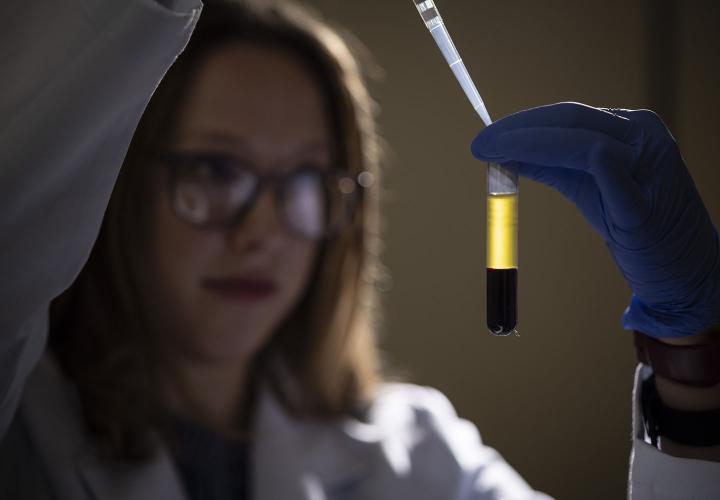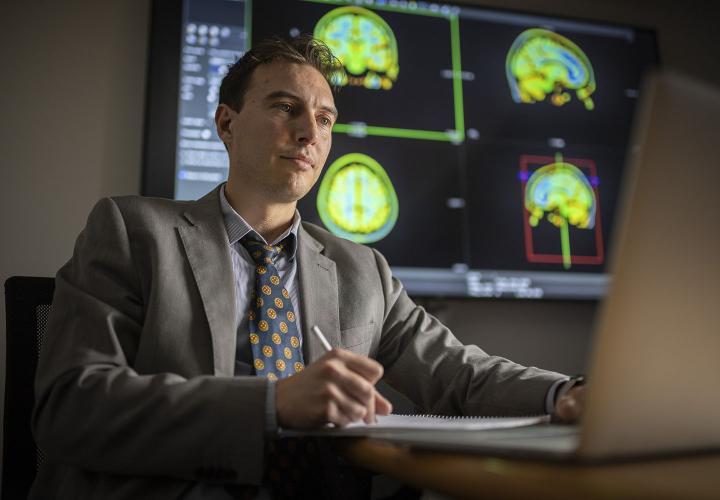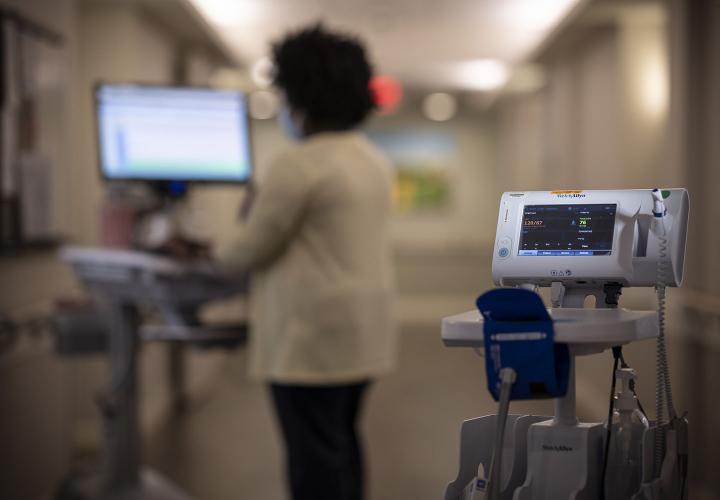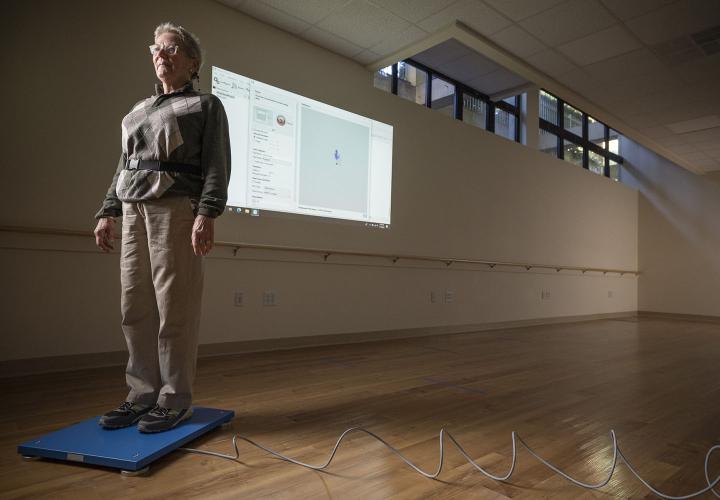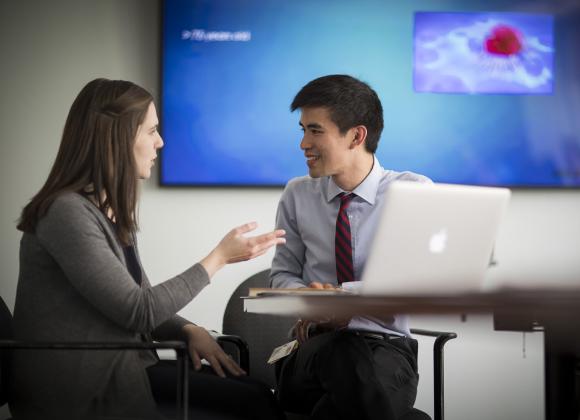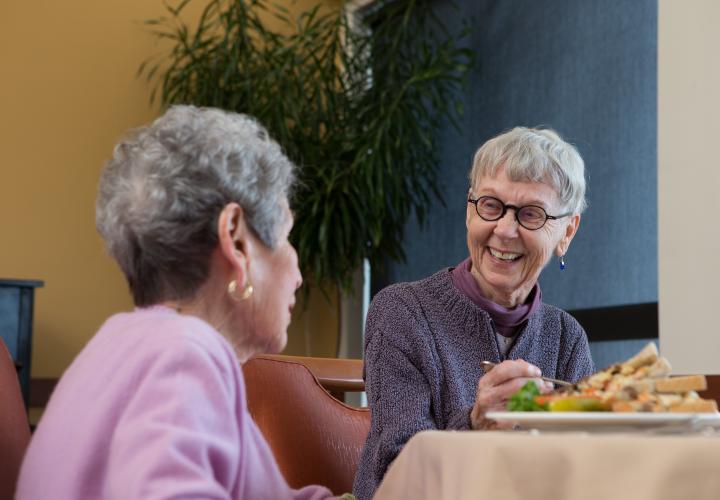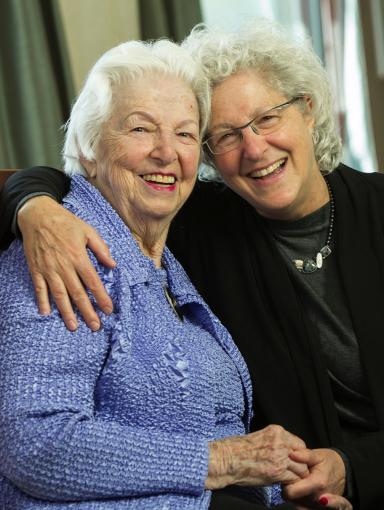Residents at NewBridge on the Charles in Dedham, MA, and Orchard Cove in Canton, MA, two Hebrew SeniorLife living communities, have funded and awarded nearly $170,000 in educational scholarships to 35 staff members this year. Hebrew SeniorLife, a nonprofit affiliate of Harvard Medical School and recognized among Boston’s Top Places to Work, remains New England’s largest nonprofit provider of senior health care and living communities.
NewBridge and Orchard Cove residents established separate scholarship committees to help staff at each community continue their education. Each committee raises funds and reviews applications from eligible employees to support their educational aspirations.
This year, the NewBridge Scholarship Committee awarded scholarships to 23 employees, and the Orchard Cove Scholarship Committee awarded scholarships to 12 employees. In each community, scholarship recipients work in many different job roles and divisions, including culinary, fitness, security, and nursing.
More than 15 of this year’s recipients received scholarships in prior years. Boston resident Carol Martinez, a culinary server at NewBridge, has received the scholarship three times and spoke at an awards ceremony held earlier in the month. Entering her junior year at Worcester State University, Martinez is studying psychology and special education and previously volunteered in an inclusion classroom. “Ever since I was able to talk, I wanted to help people. I want the feeling that I am making a difference in people’s lives. I’m focused on my studies and personal growth. I am eager to learn, grow, and contribute to my education,” she said.
The scholarships will help these employees pursue their education in a range of majors at more than 25 colleges and universities, including Babson College, Bridgewater State University, Brown University, Bryant University, Cambridge School for Culinary Arts, Dean College, Emerson College, Fitchburg State University, Franklin Pierce University, Harrisburg University of Science and Technology, Indiana University, Mass Bay Community College, Massachusetts College of Pharmacy and Health Sciences, Massasoit Community College, Northeastern University, Quincy College, Salem State University, Southern New Hampshire University, St. John’s University, University of Massachusetts, University of Vermont, Westfield State University, Wheaton College, and Worcester State University.
The recipients live in a dozen cities and towns and include multiple residents of Boston, Brockton, Dedham, Mattapan, and Stoughton.
According to NewBridge on the Charles Scholarship Steering Committee Chair Peggy Wolf, “Education doesn’t stop in one year. To be able to offer this commitment to allow an individual to go out and get an education and come back is an ongoing effort. This is an opportunity for us as a resident community to do something for NewBridge’s hourly-paid employees. This is resident-developed and supported and has become part of the fabric of NewBridge. It has always been supported by leadership, including NewBridge’s Independent Living Executive Director Matt Hollingshead and Assisted Living Executive Director Rhonda Glyman. It is the most incredible gift and such fun to be a part of.”
The Orchard Cove Scholarship Fund was founded in 2006 by residents who had been educators to help staffers attain their own educational goals. “Today’s residents are just as committed to providing scholarships to as many applicants as possible every year. We view education as the stepping stone to a brighter future for the staff, some of whom continue to work in the community after they graduate while others move on to pursue other opportunities,” said Terry Levinson, chair of the Orchard Cove Scholarship Committee. “The Orchard Cove community is like a family, and awarding scholarships to our staff is like helping your own family; in that regard, we’re very happy to see that again this year, we have a mother and daughter receiving scholarships, and a brother and sister too. For those reasons, awards night is the highlight of Orchard Cove’s calendar.”
Scholarship recipients and Quincy residents Sophie and Sulfide Saint Marc are mother and daughter. Sophie works in culinary arts and attends UMass Boston, while Sulfide works in nursing and attends the Cambridge School of Culinary Arts. Brockton residents and siblings Joshley and Jamisha Pierre both work in culinary arts and attend Massasoit Community College.
Since Orchard Cove residents established its program in 2006, they have contributed more than $580,000 in academic scholarships to more than 400 employees. The NewBridge Scholarship Committee has distributed more than $500,000 to 100 recipients in the five years since the committee was formed. In addition, Hebrew SeniorLife has established tuition discount agreements with Drexel University, Quinnipiac University, Regent University, Regis College, the University of Cincinnati, and other higher education institutions to offer a broader range of learning opportunities for all employees.
Learn more about careers at Hebrew SeniorLife.
About Hebrew SeniorLife
Hebrew SeniorLife, an affiliate of Harvard Medical School, is a national senior services leader uniquely dedicated to rethinking, researching, and redefining the possibilities of aging. Hebrew SeniorLife cares for more than 4,500 older adults a day across campuses throughout Greater Boston. Locations include: Hebrew Rehabilitation Center-Boston and Hebrew Rehabilitation Center-NewBridge in Dedham; NewBridge on the Charles, Dedham; Orchard Cove, Canton; Simon C. Fireman Community, Randolph; Center Communities of Brookline, Brookline; Jack Satter House, Revere; and Leyland Community, Dorchester. Founded in 1903, Hebrew SeniorLife also conducts influential research into aging at the Hinda and Arthur Marcus Institute for Aging Research, which has a portfolio of more than $98 million, making it one of the largest gerontological research facilities in the U.S. in a clinical setting. It also trains more than 500 geriatric care providers each year. For more information about Hebrew SeniorLife, follow us on our blog, Facebook, Instagram, Threads, and LinkedIn.
